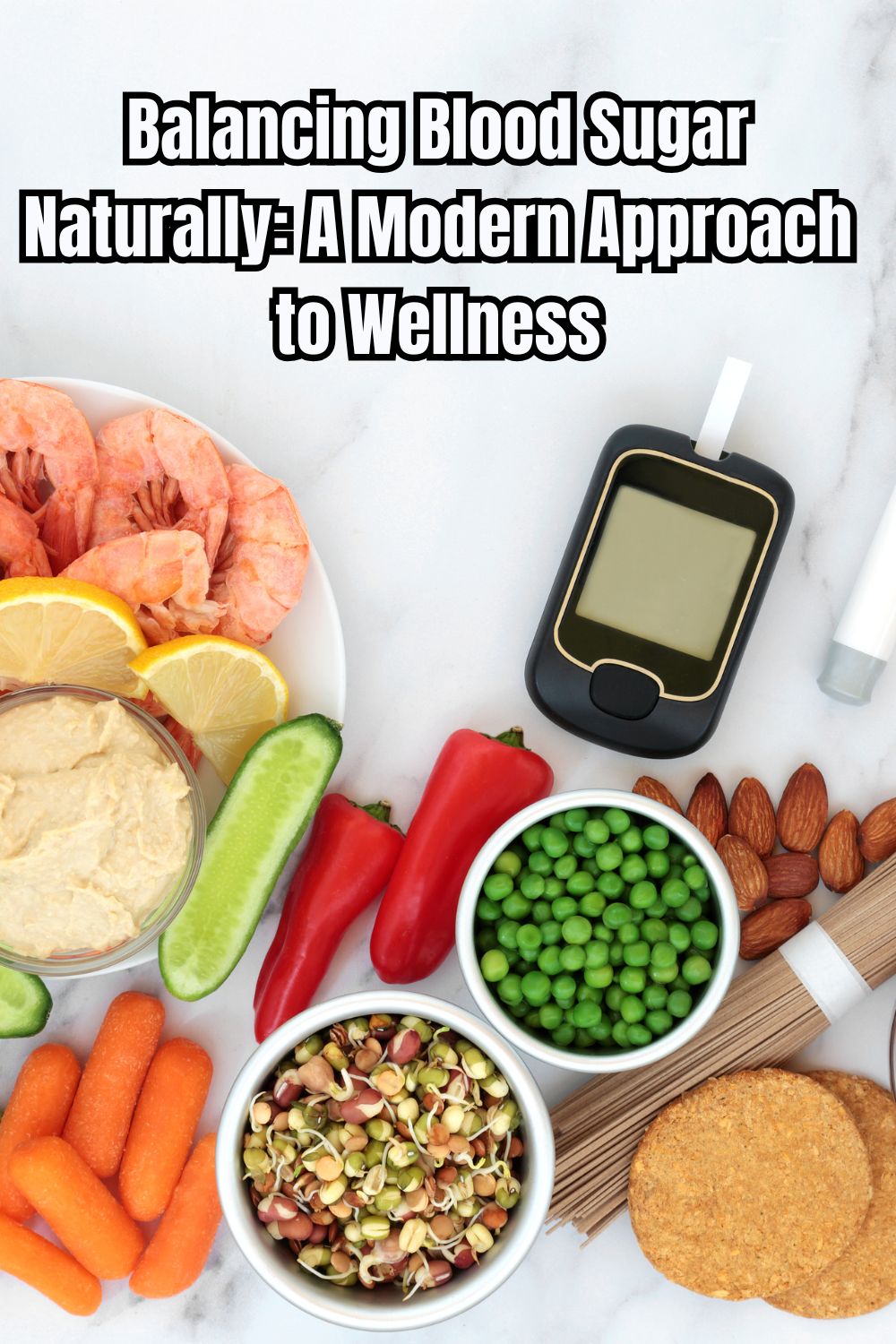Are you looking for ways on Balancing Blood Sugar Naturally? Here’s A Modern Approach to Wellness
Balancing Blood Sugar Naturally: A Modern Approach to Wellness
Key Takeaways
- Blood sugar control affects energy levels and long-term well-being, making it essential for general health.
- Natural methods, including dietary changes and physical activity, play a significant role in regulation.
- Current research highlights promising alternative strategies for effective blood sugar management.
- Understanding the impact of various foods and nutrients helps make informed dietary decisions.
- A balanced lifestyle can prevent potential health risks associated with blood sugar fluctuations.
Why Blood Sugar Balance is Essential
The careful equilibrium of blood sugar levels is essential for short-term energy needs and long-term health. An imbalance, whether high or low, can wreak havoc on your body. Persistent high blood sugar is linked to diabetes and heart disease, while low levels can lead to fatigue, dizziness, and more severe health episodes. This balance acts like a finely tuned orchestra, with each section of your body needing to play its part in harmony.
Monitoring and managing these levels effectively is becoming increasingly important in today’s health-conscious society. As lifestyle diseases rise, tools like Pep2Dia offer a novel approach to managing blood sugar. This method aligns with modern needs, suggesting that natural elements and technological advancements can form an effective management strategy.
Preventative health strategies emphasize the significance of maintaining healthy blood sugar levels. The advantages go beyond simply preventing illnesses; they also include ensuring your body runs well so you can live an active and fruitful life. By focusing on traditional wisdom and contemporary methods, individuals can better control these levels and feel the associated improvements in their day-to-day wellness.
Natural Ways to Manage Blood Sugar
- Dietary Changes: You can lessen abrupt rises and falls in blood sugar levels by eating a diet heavy in whole grains, high-fiber meals, and lean meats. Foods like oats, beans, lentils, and salmon help moderate sugar absorption in the blood.
- Physical Activity: Regular exercise, such as brisk walking, cycling, or strength training, enhances your body’s insulin sensitivity. This means muscle cells can more effectively use glucose for energy, resulting in improved blood sugar levels.
- Hydration and Sleep: Staying hydrated helps the kidneys flush out excess sugar through urine. Meanwhile, sufficient sleep maintains hormonal balance, reducing stress-induced sugar level fluctuations.
Combining these natural practices forms the cornerstones of non-pharmaceutical strategies to maintain blood sugar levels. These strategies promote better glucose management and improve overall physical and mental well-being.
Research and Emerging Trends
The scientific community is making headway in developing models and frameworks that help better understand blood sugar management. Recent studies are unveiling exciting possibilities in natural management techniques. Research focuses on nutrients, supplements, and holistic practices that have the potential to balance blood sugar levels.
The effects of specific peptides on glucose levels offer promising results. Dairy additive experts Ingredia, for example, posits a fresh perspective on managing blood glucose with a peptide derived from milk protein. This innovation indicates a more significant trend toward integrating naturally occurring compounds and technological solutions for enhanced health outcomes.
The Role of Nutrition in Blood Sugar Management
Nutritional choices impact every aspect of blood sugar management. For this reason, it is crucial to comprehend the function of carbs. Carbs break down into sugar and are a principal energy source, but excessive consumption can lead to imbalances. People can better predict and control their blood sugar levels by choosing complex carbs that digest more slowly.
Understanding Low-Glycemic Foods
Low-glycemic foods digest slowly, causing a gradual rise in blood sugar levels. These foods encompass whole grains, legumes, and non-starchy vegetables like broccoli and leafy greens. By integrating these into a diet, individuals can construct a meal plan conducive to sustaining stable energy release throughout the day, minimizing the risk of fatigue and crashes associated with high-glycemic foods.
Building a Holistic Lifestyle
Optimal health involves more than just reactive measures; it’s about building a foundation incorporating diet, physical activity, and stress management. Adopting a holistic lifestyle allows for sustained blood sugar management, enhancing overall quality of life. Moreover, techniques like yoga or meditation are invaluable, helping to diminish stress – a significant contributor to elevated blood sugar levels. These practices promote a mind-body balance, fortifying resilience against day-to-day stressors affecting physical health.
Preventive Measures for Long-Term Benefits
Embracing preventive measures requires a proactive mindset regarding lifestyle choices. Regular medical check-ups, discerning food choices, and consistent physical activity form the core of enduring health and wellness strategies. Early adoption of these habits does more than prevent health complications; it lays the groundwork for a future of well-being, reducing mental and physical stress associated with chronic health conditions. It’s about investing in oneself today for a healthier tomorrow.

Leave A Reply!